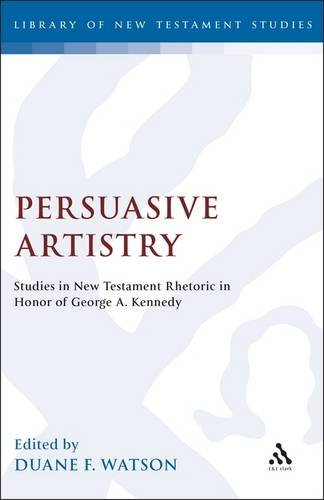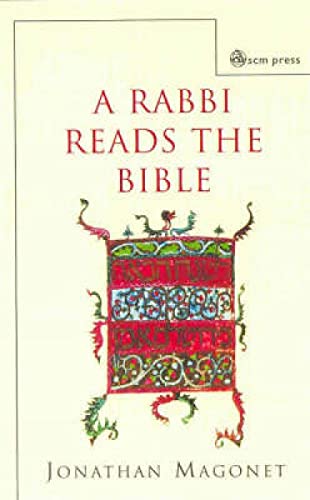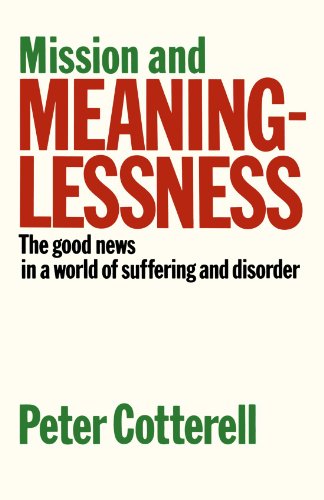Volume 18 - Issue 3
‘All our gods have failed’
By Christopher J.H. Wright‘All our gods have failed’. These poignant words come at the end of an editorial in a British newspaper, The Sunday Independent, commenting on the mood of acute moral self-examination and despair that has gripped the nation in the wake of the abduction and murder of a two-year old boy in Liverpool. Children have been murdered before. What makes this case so horrifying is that the child was led away almost from his mother’s side in a busy shopping centre in broad daylight, the event was captured on a security video, and those arrested and charged with the crime are two ten-year old children. The tragedy has thrown up a barrage of questions about the social malaise which allows such things to happen. The most profoundly disturbing symptom is the alienation and violence of growing sections of the nation’s youth, and the apparent inability of the police, judiciary and social services to stem the tide of criminality which has now infected even the pre-teenage years.
I trust our international readers will forgive this focusing on a British issue, but I think it illustrates a much wider problem in modern culture. The expression ‘moral vacuum’ has been tossed around in the media as an attempt to describe the apparent refusal of some sections of society to recognise, let alone live by, basic moral standards, and the apparent inability of the rest of society to inculcate or enforce them. The phrase is apt, but means more than the absence of morality. The whole point about a vacuum is that it does not just happen, for nature, as we all know, ‘abhors a vacuum’. Vacuums have to be created. You get a vacuum when you deliberately suck out the air inside an object. It has to be pumped out and sealed out. Western culture for the past 200 years has been systematically and deliberately sucking out the transcendent from its public heart and core. Os Guinness has pointed out that ‘glory’ in Hebrew literally means weight, substance, reality. So a society which excludes the glory of the living God becomes increasingly ‘weightless’. It becomes hollowed out, empty, drained of reality and meaning, first spiritually, then morally, and finally in every area of social and personal life (cf. Rom. 1:21–32). That’s the kind of vacuum Britain is discovering. Moral revulsion and national conscience send us to the larder of values, but when we get there the cupboard is bare.
We thought we could have value-free facts in the great secular, scientific enterprise, and we thought we could hold on to our values while denying them any basis in fact—the fact of God and the truths of objective revelation. The cleavage in our post-Enlightenment culture between the realm of alleged objective facts and public truth on the one hand and private beliefs and moral or religious values on the other hand has become so deep that we see them as totally unrelated even in a single individual. Thus we are capable of saying that it shouldn’t matter if public figures, royalty, government ministers, senior legal figures, etc., are found, for example, to have committed adultery; their private lives do not affect their public credibility or integrity. But if a man can lie to his wife in word and deed in the context of the strongest personal commitment he has made, on what grounds can we trust his veracity or integrity in his public words and deeds? We are governed by those who wink at the breaking of the seventh commandment, collude by inaction over those who announce in advance their intention of breaking national laws related to the fourth, respond with callous procrastination over gross injustices done through the breaking of the ninth in court by those most trusted to uphold it, positively encourage the breaking of the tenth, and then profess to find it inexplicable that the generation below them trample on the fifth, sixth and eighth. We not merely float in a moral vacuum, but also flounder in moral schizophrenia.
Part of the process of creating that moral and spiritual vacuum has been the marginalizing of the church. God is a leisure activity, or the merely symbolic veneer of something called ‘our heritage’. The Independentarticle has a huge cartoon at its head, in which on one side rats and worms are devouring a loaf called ‘country pride’, and on the other side the sun is shining on a typical English village church, surrounded by birds and flowers. The imagery is powerful. The church is not itself reality. It is merely the idyllic symbolism of a nostalgic myth. Reality is the loaf. And the loaf is mouldy and crumbling (cf. Isaiah 55:1–2). So if we look for ultimate nourishment to our national pride in itself, even by sticking national flags on or in the church, it will fail us (and already has) as totally as the other false gods we can no longer trust.
For of course the article’s conclusion speaks more truly than it knows. The words were doubtless intended ironically and without literal intent. But biblical Christians know them to be the sober truth. Human nature abhors a vacuum too, and the vacuum left by the explusion of the living God and his truth from our culture has been filled with a succession of other gods and their lies (Rom. 1:25). The article selects two failed gods of British post-war social history—the collectivist values of the union-dominated Labour era, followed by the individualist values of the Thatcherite 1980s. The former mercifully never reached the levels of destructiveness that its extreme forms wrought in the communist world, but the latter has proved to be an acid dissolving almost every social value in its way. One commentator (Jeremy Seabrook, in The New Statesman) calls it ‘an individualism so extreme that not only have the institutions of solidarity been all but destroyed, but the most precious bondings and associations between people have also been severely strained, the ties of kinship, blood and love’—the very things that God designed his covenant community, his ‘light to the nations’, to preserve and protect. ‘There is no such thing as society’, said Mrs Thatcher—a philosophy which makes it curiously inconsistent for her standard-bearers now to complain about the ‘anti-social’ activities of the young. They can hardly be ‘anti-’ something that doesn’t exist, or in any case something they have been effectively robbed of—a meaningful sense of a society they can belong and contribute to.
Idolatry means treating as of ultimate worth anything which is not God, and looking to it for solutions, salvation or security. It has taken myriad forms, ever since Cain built a city and started a family to find a substitute security in the land of restlessness and the loss of God’s presence. The greatest idol of all is the human self, and our recent history shows us the diabolical consequences of self-interest and self-worship—whether of the collective self or the individual self. Both idolatries made great promises and called for great sacrifice (as is also the nature or idols, cf. Bob Goudzwaard, Idols of Our Time, IVP, 1984). Both had a kind of utopian salvation language, an infinitely deferrable economic eschatology, but ‘now, the Thatcher promise of salvation through individual self-reliance and self-discipline is exposed as another failure, socially as well as economically’.
The worst thing about idols, as the Hebrew scriptures so tirelessly point out, is that they are utterly useless when you need them most (Jer. 2:28). On the contrary, they become a burden to their very worshippers who have to pay the cost of carrying them (Isa. 46:1–2). What a price Britain and other western nations are now paying for the accumulated idolatries of generations. The acute suffering of a Liverpool family merely concentrates in the agony of a few the outworkings of a malaise of national judgement that none can entirely evade. The church and its theologians must not fail to rise to the need and the kairos of the national mood. The prophetic voice must be heard that puts the claims of the gospel back into the public arena. The prophetic sign must be seen that makes visible in the life of Christian communities and families an alternative bread, the offer of the only saving God. ‘If we feel utter despair, it is because we see no new promise’, concludes the Independent article. Israel in exile thought the same, until Ezekiel stood in a valley full of dry bones and witnessed the resurrecting power of the spirit of Yahweh. ‘All our gods have failed’. Of course they have. And we must pray and preach that this becomes not merely a figure of speech, but an acknowledgement of reality and a liturgy of repentance.
Christopher J.H. Wright
Principal, All Nations Christian College, Ware






